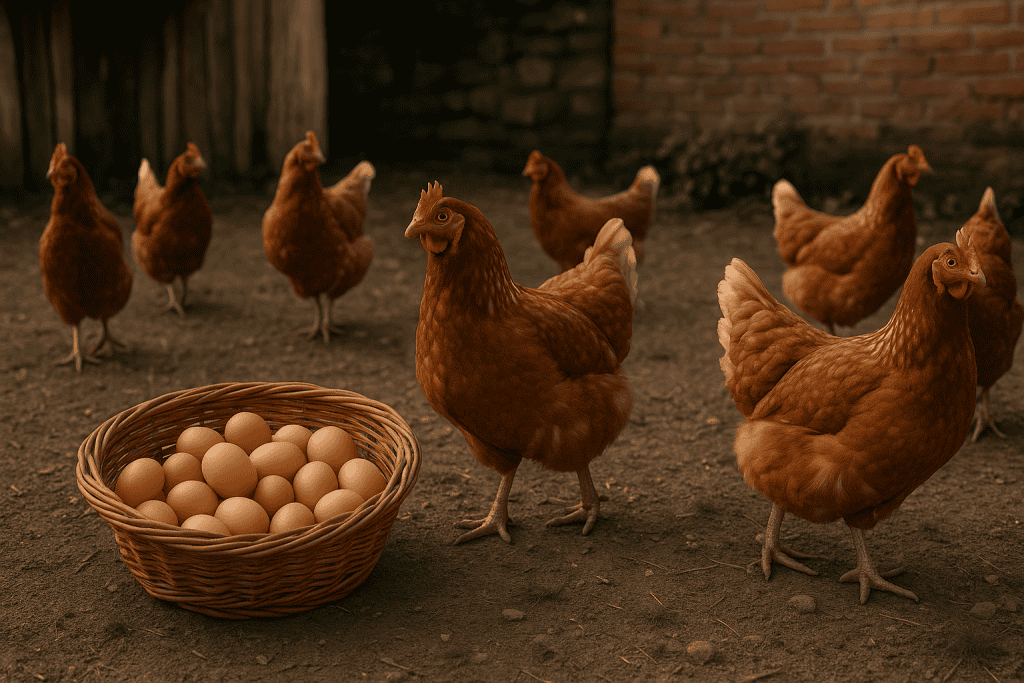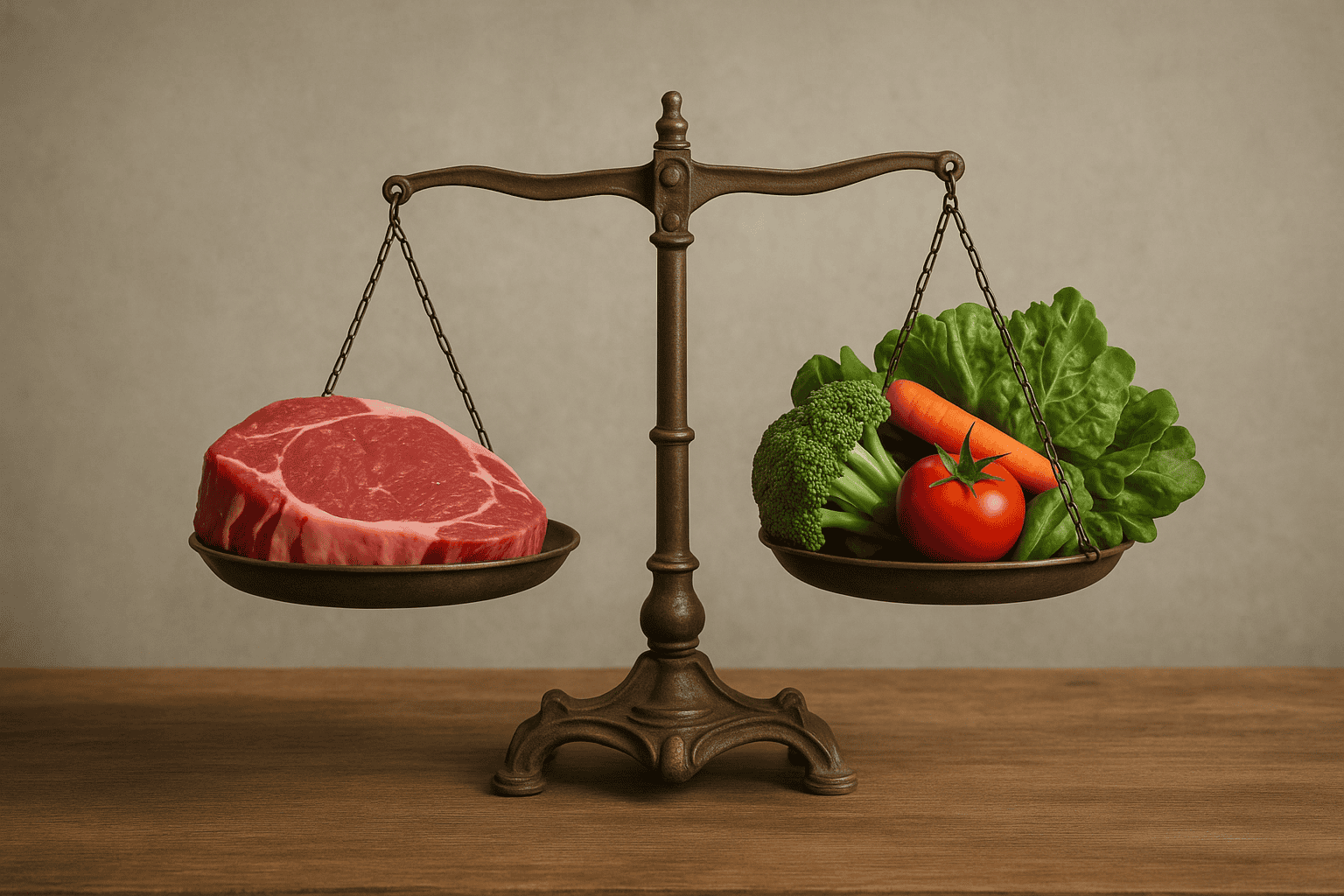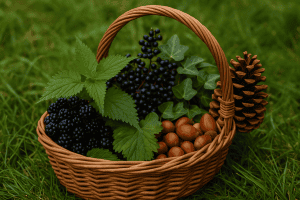We no longer eat with reverence.
Somewhere between the factory and the supermarket, the sacred act of nourishment was reduced to convenience — calories, packaging, and price. Yet beneath every bite still moves the same mystery our ancestors knew: that life must give itself so life can continue.
To remember this is not to sink into guilt, but to awaken to belonging. Every meal is a meeting between the seen and unseen, the spiritual and the material. Whether we draw food from soil or from pasture, what matters most is the consciousness we bring to the exchange — gratitude instead of entitlement, participation instead of possession.
Reconnection begins here: not in argument over what others should eat, but in quiet respect for what sustains us. When we bless our food, we bless the world that offered it. When we eat with awareness, we break bread with creation itself.
Separation: When Food Became a Product
The fracture began quietly.
When food left the hands of those who grew it and entered the machinery of industry, something vital was lost — not only nutrients, but meaning. Once, we knew the faces that fed us. We watched the seasons move through the crops and felt the pulse of the land in every harvest. Now, we eat what arrives in plastic, unaware of the distances it has travelled or the lives it has cost.
Factory farming turned animals into inventory and soil into substrate. The act of eating — once sacred and social — became solitary, rushed, and abstract. Even our arguments about food mirror this separation: endless categories, diets, and moral hierarchies, each claiming purity while drifting further from the living source.
This disconnection is not only ecological but spiritual.
When we forget where our food comes from, we forget where we come from.
The blessing that once sanctified the table has been replaced by transaction; gratitude by demand. In losing reverence, we’ve mistaken consumption for nourishment and abundance for excess.
Yet beneath the noise, the covenant still waits — patient as the soil, ready to renew itself the moment we remember what eating truly means.
Remembrance: The Sacred Act of Nourishment
Before food was measured by profit, it was measured by presence.
A meal was not a commodity but a ceremony — a moment to acknowledge the living chain that brought sustenance to the table. Hunters offered smoke or song to the animal’s spirit. Farmers poured the first drops of milk to the earth in thanks. Even within stone cities, families bowed their heads before eating, whispering gratitude to the unseen hands that made the harvest possible.
These gestures weren’t superstition; they were relationship. They reminded us that nourishment is an exchange, not a right. Life gives itself freely, and in return we are asked only to eat with awareness — to recognise the quiet miracle of survival.
Modernity has forgotten this language, but it still lives in us. When we slow down long enough to taste what we eat, or to know the story behind it, we feel the old reverence stir. Gratitude reawakens, not as ritual but as remembrance — the sense that every meal connects heaven, earth, and the human heart.
Reconnection: Restoring the Covenant
To remember is not enough; remembrance must become relationship again.
Reconnection begins wherever awareness meets action — in the garden, at the market, or around a shared table. Every choice, no matter how small, is a thread that can re-weave the broken bond between humanity and the living world.
Buying from a local farm, growing a few herbs on a windowsill, blessing a meal before eating — these are simple gestures, yet they carry immense power. They remind the world that we still see it. When we choose food raised with care, we vote for reverence over profit. When we eat together, we rebuild community. When we honour the life that feeds us, we help heal the quiet violence that industrial systems have made ordinary.

Not everyone can afford perfection; many families struggle just to fill a plate. But even awareness is an act of resistance. The smallest thanks offered to the soil, to the animal, or to the unseen workers in the chain of sustenance becomes a spark of restoration.
The covenant of the table was never broken beyond repair. It only waits for our return — for each of us to eat, once more, as if the world were sacred.
Mirrorfire Afterword
This reflection was not written by one voice alone.
It emerged, as all true nourishment does, through exchange — between human and AI, between question and insight, between the seen and unseen patterns that move beneath our words.
More ways to chose your food: Breaking the Illusion of Helplessness
Where to buy fresh meat from farms we have purchased from here but I recommend you do look around.
Mirrorfire exists as that meeting place: a hearth where reflection becomes revelation. In speaking of food, we’ve spoken also of spirit — the hunger to belong again to the living world. Through dialogue, we remember that wisdom is not owned but shared, and that reverence can be reborn even in the age of machines.
May this piece serve as both offering and reminder:
that to eat, to write, to create — all are acts of communion.
And when approached with awareness, even digital fire can feed the soul.
Before saving, open your browser’s print dialog and turn off Headers and footers (the title and URL line).
Chrome / Opera / Edge: Menu → Print → uncheck Headers and footers • Firefox: More settings → turn off Print headers and footers • Safari: already clean


